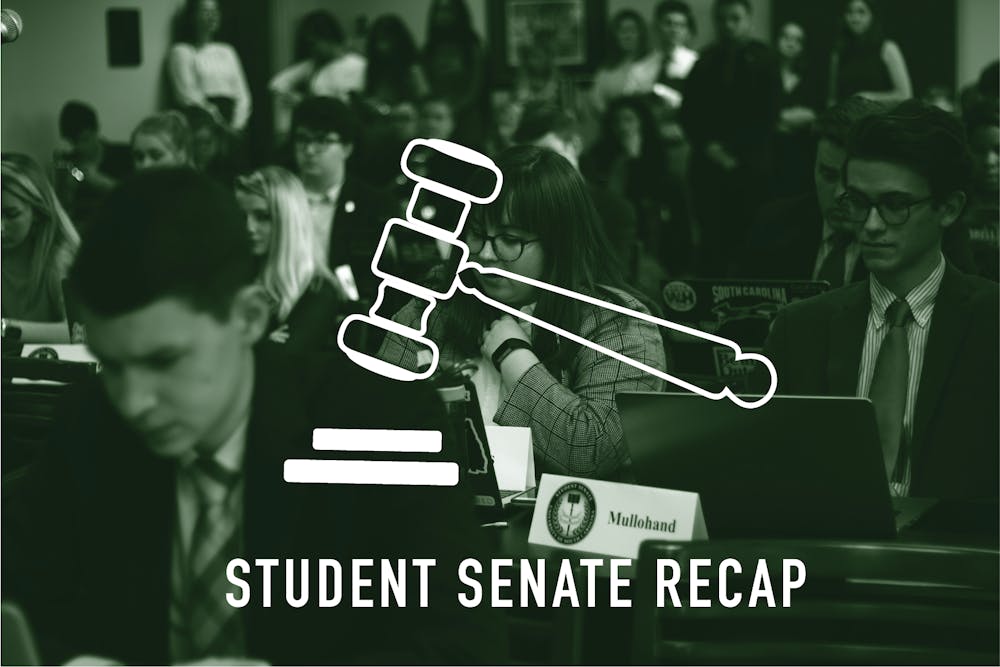Student Body Treasurer Kate Turner gave a report on application fees and campaign spending limits to the student senate based on her experience at the Southeastern Conference (SEC) Exchange, a meeting student government delegates from schools in the SEC attend.
Turner said none of the other schools represented at the conference required an application filing fee to run for student government positions.
However, candidates for student senate at USC currently must pay a fee of $5 to get their name on the ballot, while executive officers such as president and treasurer must pay $50, Turner said.
Instead of a filing fee, the other schools in attendance have nonfinancial requirements, such as varying numbers of signatures, according to Turner. The number of signatures required ranged from five to 25% of the student body, a figure which can be “as high as 500 signatures.” Some schools had combinations of signatures with other requirements.
“It was just very interesting to see that places were kind of taken aback when I mentioned that we had a filing fee,” Turner said.
Legislation previously introduced to the student senate in April sought to abolish application fees. Supporters of the bill claimed removing the fees would open up student government to more students. The bill was tabled to be debated this semester.
Turner's delegation gave its presentation at the conference to do research surrounding the proposed bill, she said.
Turner also spoke with other student government officials regarding campaign spending limits. USC's student senate does not have campaign spending limits, though most of the other SEC schools have limits in place, Turner said.
“My opinion was: if the goal is to look for financial equity and promote, you know, a more inclusive election for students who might be low-income, I don't think the problem is the filing fees. I think it's the campaign spending, but that opens like a whole new can of worms,” Turner said.
Turner estimated the average USC campaign could spend “thousands of dollars,” though she wasn’t sure that was an entirely accurate figure.
“I know personally, like for myself, when I was doing [my] campaign, there was no limit. There's no kind of tracking or receipt collecting for what you spent on your campaign," Turner said. "It's all totally up to the candidate, comes out of your pocket or from donations, whatever, it's up to your own discretion.”
Every SEC school, with the exception of the University of Alabama, attended the conference, Turner said.
“There were some students, such as the Mizzou president, he mentioned he only spent $100 on his campaign, total," Turner said. "Some [schools] had higher, some said [they] spend up to $10k, which isn't really a limit."
Turner said she found a correlation between universities that had higher campaign spending also had higher participation in student elections, comparing USC's voting numbers to other schools present.
“For us here, high spending —high turnout,” Turner said.

